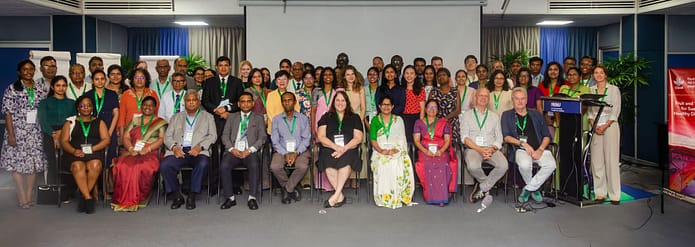Benin
Benin is a country with a rich network of rivers and wetlands, including the Niger and Ouémé rivers, which are vital for agriculture, fishing, and transportation. Despite its abundant water resources, the country faces challenges such as seasonal flooding, water pollution, and the effects of climate change on water availability and quality. Efforts to improve water management and address environmental degradation are crucial for maintaining sustainable livelihoods and preserving the country’s natural ecosystems.
IWMI in Benin
IWMI’s work in Benin focuses on enhancing the resilience and sustainability of agricultural systems through improved water management and the integration of innovative practices. By promoting efficient irrigation and water management techniques for key crops like cassava, rice, and wheat, IWMI is helping farmers adapt to the challenges posed by climate change and increasing water scarcity. This work is coupled with capacity-building initiatives, which engage farmers, extension workers, and the private sector to implement water-efficient practices and improve agricultural productivity.
In addition, IWMI is contributing to broader efforts to improve food security and nutrition in Benin by promoting the cultivation and consumption of nutrient-rich fruits and vegetables. Through targeted programs, the organization is working to empower women and youth, enhance livelihoods, and mitigate environmental impacts through sustainable agricultural practices. These initiatives aim to strengthen local food systems while addressing both health and environmental challenges in the region.
Contact
Get updates
Latest Benin publications

Modeling Earth Systems and Environment, 2024
More... [DOI]

2020
More... [DOI] | Fulltext (1.47 MB)
Science of the Total Environment, 2020
More... [DOI]
Data in Brief, 2019
More... [DOI] | Fulltext (172 KB)





